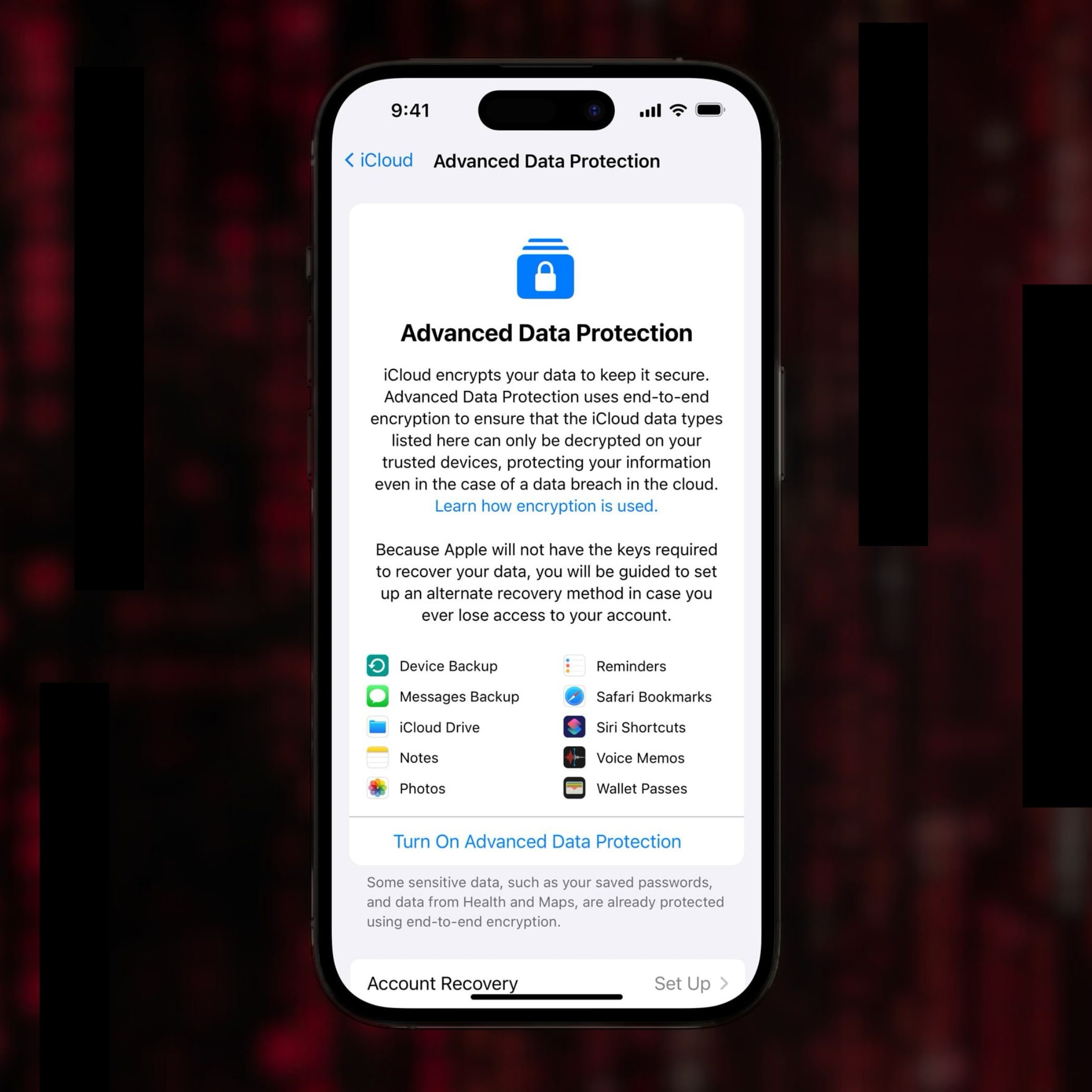Apple has effectively told the UK government to get lost when it comes to inserting a worldwide surveillance backdoor into its iCloud encryption. Instead of playing along with Britain’s ever-expanding digital police state, the tech giant has chosen to pull its most secure data protection feature — Advanced Data Protection (ADP) — for users in the UK. Because nothing says “we respect your privacy” like stripping away the very feature designed to protect it.
The whole mess started when the British government, wielding the notoriously invasive Investigatory Powers Act (a law that might as well be named the “We Own Your Data Act”), demanded that Apple sabotage its own encryption. The UK’s authorities wanted a golden key to every citizen’s iCloud storage, under the guise of “public safety.” But here’s the wider issue: the directive wouldn’t only affect Brits — it would have compromised Apple’s encryption system worldwide.
This was an attempt to strong-arm one of the world’s most powerful tech companies into submission, setting a precedent that could crack open user privacy like an egg.
Rather than comply, Apple responded with a very diplomatic version of hell no. Instead of weakening encryption for everyone, the company opted to remove ADP from the UK entirely. In a statement that practically oozed frustration, Apple declared:
“We are gravely disappointed that the protections provided by Advanced Data Protection will not be available to our customers in the United Kingdom, given the continuing rise of data breaches and other threats to customer privacy.”
They continued, insisting that they remain committed to offering users “the highest level of security” and expressing “hope” that they’ll be able to restore ADP in the UK at some point in the future. That’s corporate-speak for, maybe when your current government stops acting like the digital arm of Big Brother.

The UK government’s demand is just the latest chapter in the global war on encryption. Law enforcement agencies love to claim they need backdoors to stop criminals and terrorists. But here’s the problem: a backdoor for the “good guys” is a backdoor for everyone. Hackers, foreign spies, rogue governments — once you build the skeleton key, you can’t control who picks it up.
So, who benefits from Apple kneecapping its own encryption? Certainly not the average British citizen, who now has weaker privacy protections. Certainly not journalists, activists, or anyone who has ever dared to challenge authority. The only real winners are intelligence agencies and bureaucrats who believe the solution to crime is universal surveillance.
British Apple users who activated Advanced Data Protection (ADP) are now being shoved into an ultimatum straight out of a dystopian novel.
Apple, for its part, has played the game with a stiff upper lip, carefully avoiding any public mention of the UK Home Office’s directive. That’s not because they’re being coy — it’s because acknowledging the order is literally a crime under British law. That’s right: even saying “Hey, the government told us to do this” could land Apple in legal hot water.
But Apple saw this coming. The company had warned Parliament in advance that this exact scenario was likely to unfold. And now that it has, Apple isn’t bending.
“As we have said many times before, we have never built a back door or master key to any of our products or services, and we never will,” the company reiterated in a statement Friday.
That’s as close as you’ll get to a tech giant saying, “Get lost.”
Naturally, the UK government has nothing meaningful to say about all this. When asked about the order, a Home Office spokesperson gave the standard, sterile response:
“We do not comment on operational matters, including for example confirming or denying the existence of any such notices.”
Apple has a long track record of resisting government attempts to weaken encryption, and this move lets it sidestep the demand without technically breaking the law. It’s a clever, if imperfect, workaround. Apple hasn’t outright complied with the UK order, but it also hasn’t directly defied it.
The UK government is, of course, justifying its demands with the usual talking points: criminals, terrorists, child abusers—all the greatest hits. And sure, no one’s arguing that law enforcement shouldn’t go after criminals. The problem is that this strategy treats everyone like a suspect. Remember, this is the same government that plans to spy on everyone’s bank accounts.
The United Kingdom’s latest assault on digital privacy is a national crisis — but it’s also a flashing red warning sign for the rest of the world. By forcing Apple to disable its strongest encryption feature, the UK government has cracked open the door for every surveillance-hungry state on the planet.
And let’s be clear: if Britain, a country that still pretends to value democracy, can do this, then every other government with authoritarian tendencies is taking notes.
A Playbook for Mass Surveillance
This isn’t just about Apple or the UK. This is about setting a precedent. Britain has handed world governments a blueprint for coercing tech companies into submission—secret legal directives, gag orders, and the threat of criminal penalties for even acknowledging government interference.
It’s a dream scenario for regimes that see encryption as an obstacle to control. Once Apple caves in the UK, what’s stopping other countries from making the same demands? The moment a company demonstrates that it will roll back security for one government, it becomes open season for every other government to demand the same—or worse.
The Investigatory Powers Act, lovingly known as the “Snooper’s Charter,” was already one of the most extreme surveillance laws in the Western world. But British lawmakers didn’t stop there. They wanted more power, more access, more control—because in the minds of surveillance bureaucrats, there’s no such thing as too much spying.
By forcing Apple to kneecap Advanced Data Protection, they’ve ensured that British citizens—regular, law-abiding people—are now more vulnerable than ever to cyber criminals, rogue states, and corporate data exploitation. Their personal lives, once protected by some of the strongest encryption available, are now open to abuse.
The real tragedy here isn’t only the immediate impact on Apple users — it’s what this signals for the future. The UK is laying the groundwork for a world where privacy isn’t a right, but a privilege granted at the discretion of the overreaching state.
And that’s the endgame of every surveillance regime. Once you normalize backdoors, once you force companies into secret compliance, once you criminalize even discussing government interference — you’re no longer living in a democracy. You’re living in a managed information state where privacy exists only when the government allows it.
For now, Apple has resisted the worst-case scenario. They didn’t build a backdoor, and they didn’t weaken global encryption — as far as we know. But the moment they concede ground to any government, they’ve set the precedent that encryption is negotiable.
And if encryption is negotiable, privacy itself is negotiable.
The UK’s decision will embolden others. And unless users—especially those in so-called democratic nations—start demanding better, this is only the beginning. Because once you let governments dictate who deserves privacy, the answer will always be the same:
Not you.












